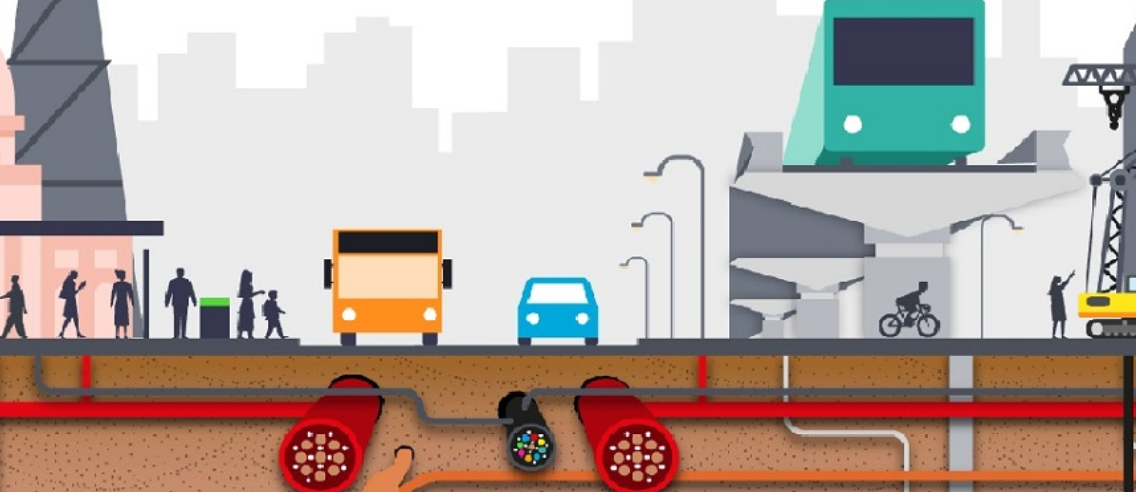The Department for Science, Innovation and Technology (DSIT) and the Geospatial Commission have launched the ground-breaking National Underground Asset Register (NUAR),
which is expected to boost the UK economy by £5 billion over the next 10 years.
Mapping the Subsurface Landscape
Provided in association with AtkinsRéalis, NUAR functions as an electronic database of subterranean resources, including broadband cables, gas pipelines, water pipelines, and other vital infrastructure components.
The government claims that NUAR will completely change the way subsurface pipes and cables are installed, maintained, operated, and repaired—even though there are alternatives like LSBUD. This will ultimately promote economic growth and reduce disturbances to the public.
Nationwide Expansion for a Comprehensive Impact
A major step forward has been made with NUAR’s recent growth into the East, South West, North West, Yorkshire, The Humber, and South East of England. NUAR is expected to be fully operational throughout the United Kingdom by 2025.
Collaborative Data Contribution
Large water and electricity providers, as well as important telecommunications corporations, have kindly provided NUAR with its infrastructure data. A thorough and inclusive database has been ensured by the active participation of even tiny service providers in these domains.
Projected Economic Impact
Via NUAR, the government projects an annual economic increase of £490 million, which translates to a considerable £5 billion over the following ten years.
This economic boom is ascribed to increased productivity in building and development, which lowers the likelihood of unintentional damage to crucial pipelines and cables. As such, the general public and companies stand to gain from less interruption caused by extended road closures.
Financial Investment and Collaboration
According to a Freedom of Information request, NUAR spent £14.9 million and £22.2 million on development in the fiscal years 2021–2022 and 2022–2023.
This included £5.3M for asset owner onboarding, £8.75M for service development, and £850,000 for policy and program delivery.
The Geospatial Commission and AtkinsRéalis negotiated a £23 million agreement that will be implemented between 2021 and 2024 for NUAR.
Legislative Updates for Seamless Data Sharing
New parliamentary proposals seek to modernize current laws by utilizing data and technological developments. If approved, these upgrades will give employees almost rapid access to standardized and complete data.
By charging asset owners just and appropriate fees, the proposed reforms also guarantee a long-lasting service.
Transformative Potential Acknowledged
The Parliamentary Under Secretary of State for DSIT, Viscount Camrose, emphasized the partnership between government and business while reiterating NUAR’s revolutionary potential. The resolve to encourage this innovation is reflected in the continuous legislation revisions.
The Geospatial Commission’s independent commissioner, Alexandra Notay, emphasized the potential advantages of NUAR for the real estate industry while expressing satisfaction with the organization’s advancement.
She thinks NUAR might spur innovation in real estate-related operations, development, and construction, enabling quicker and more informed decision-making.
Finally, it can be said that the National Underground Asset Register is a trailblazing initiative that will not only transform infrastructure management but also have a long-lasting impact on the UK economy.
